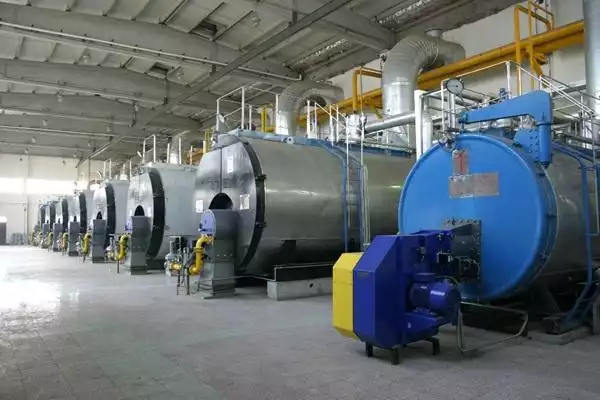
Fangkuai Boiler Introduces New Biomass Boilers >
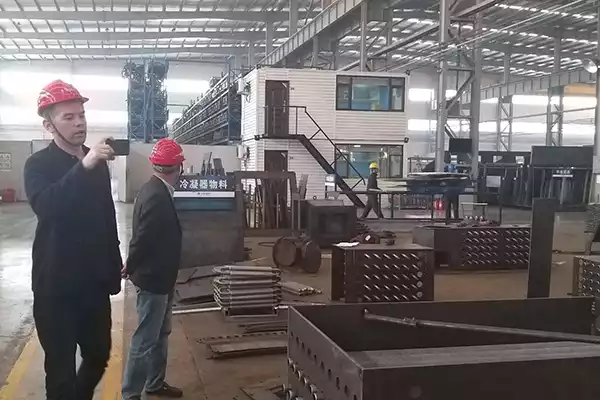
FangKuai Boiler Company: Leading the Way in Energy-efficient Boiler Manufacturing >
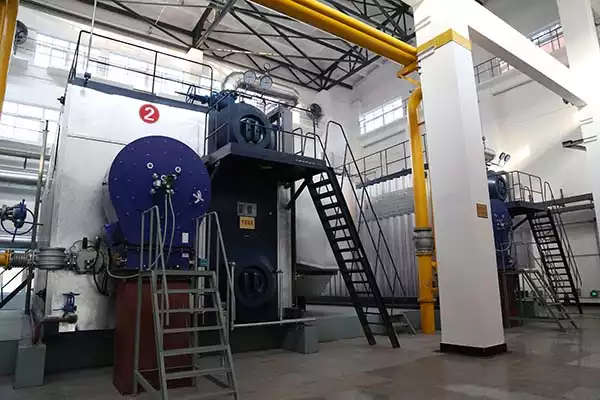
FangKuai Boiler Continues to Lead the Way in Energy-efficient Boiler Manufacturing >
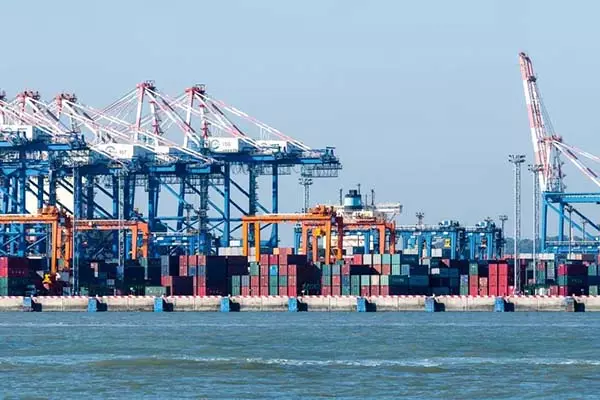
Fangkuai-Kessel: A Stable Development in the Overseas Market >
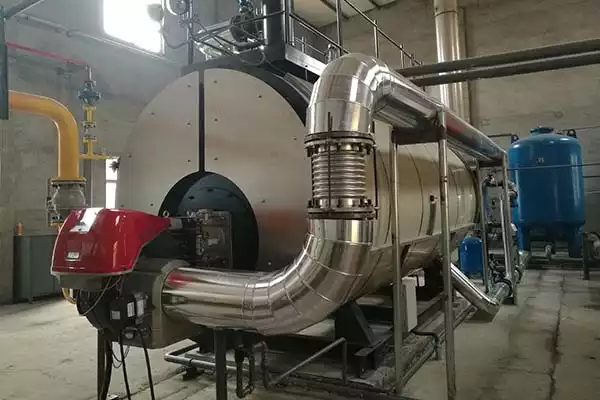
Boost Brewing Efficiency with Fangkuai Gas Boilers & Condensing Water Recovery >
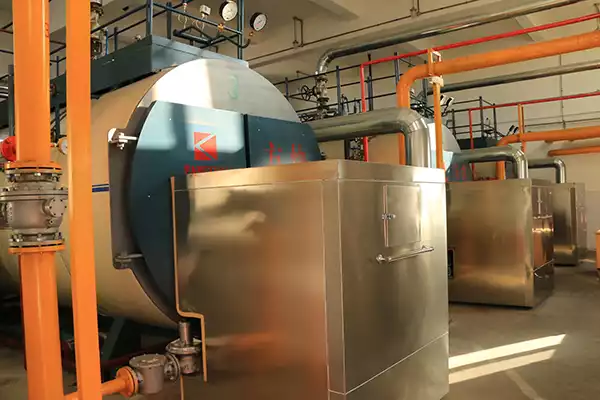
Empowering the Textile Industry in Bangladesh with Fangkuai Dual Fuel Boilers >
.jpg)
Discover the key factors affecting industrial electric steam boiler price, including capacity, Druck, und Energieeffizienz. Get expert insights to make an informed purchase decision.

Learn the key factors that affect heater boiler replacement costs, including boiler type, Größe, Installationskomplexität, und Energieeffizienz. This guide helps you make an informed decision and plan your budget effectively for a cost-efficient replacement.

A fire tube steam boiler is a type of boiler in which hot gases pass from a fire through one or many more tubes running through a sealed container of water. The heat of the gases is transferred through the walls of the tubes by thermal conduction, heating the water and ultimately creating steam. This type of boiler is widely used in various industries for heating and power generation.

Installing a heating boiler is a significant investment that directly impacts your home's comfort, Energieeffizienz, and long-term savings. Whether you're upgrading an old system or installing a brand-new boiler, understanding the cost factors, installation process, and ways to save money is crucial.
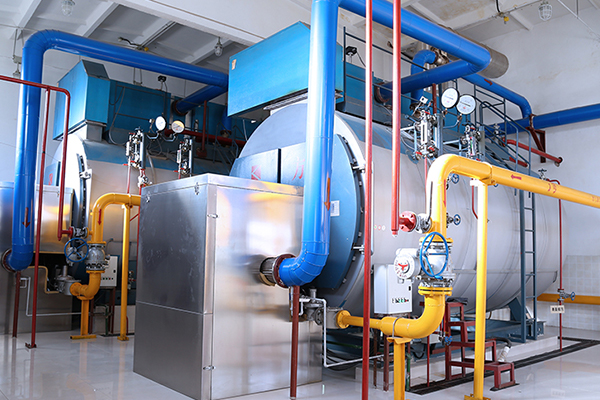
This guide provides a professional overview of steam boilers, covering their types, Arbeitsprinzipien, and efficiency to help you make informed decisions.
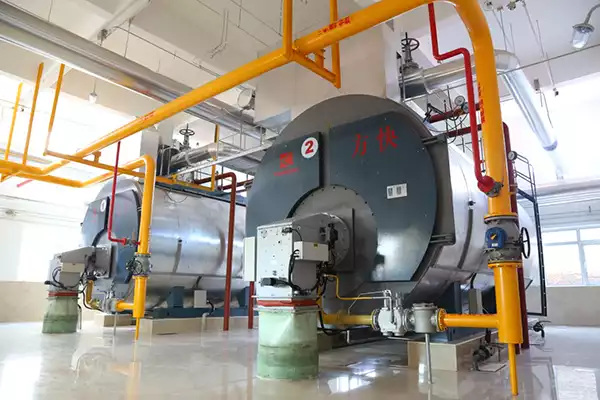
Derzeit, we have provided one-stop solutions for manufacturing, Installation, commissioning, and operation for 200+ industries.
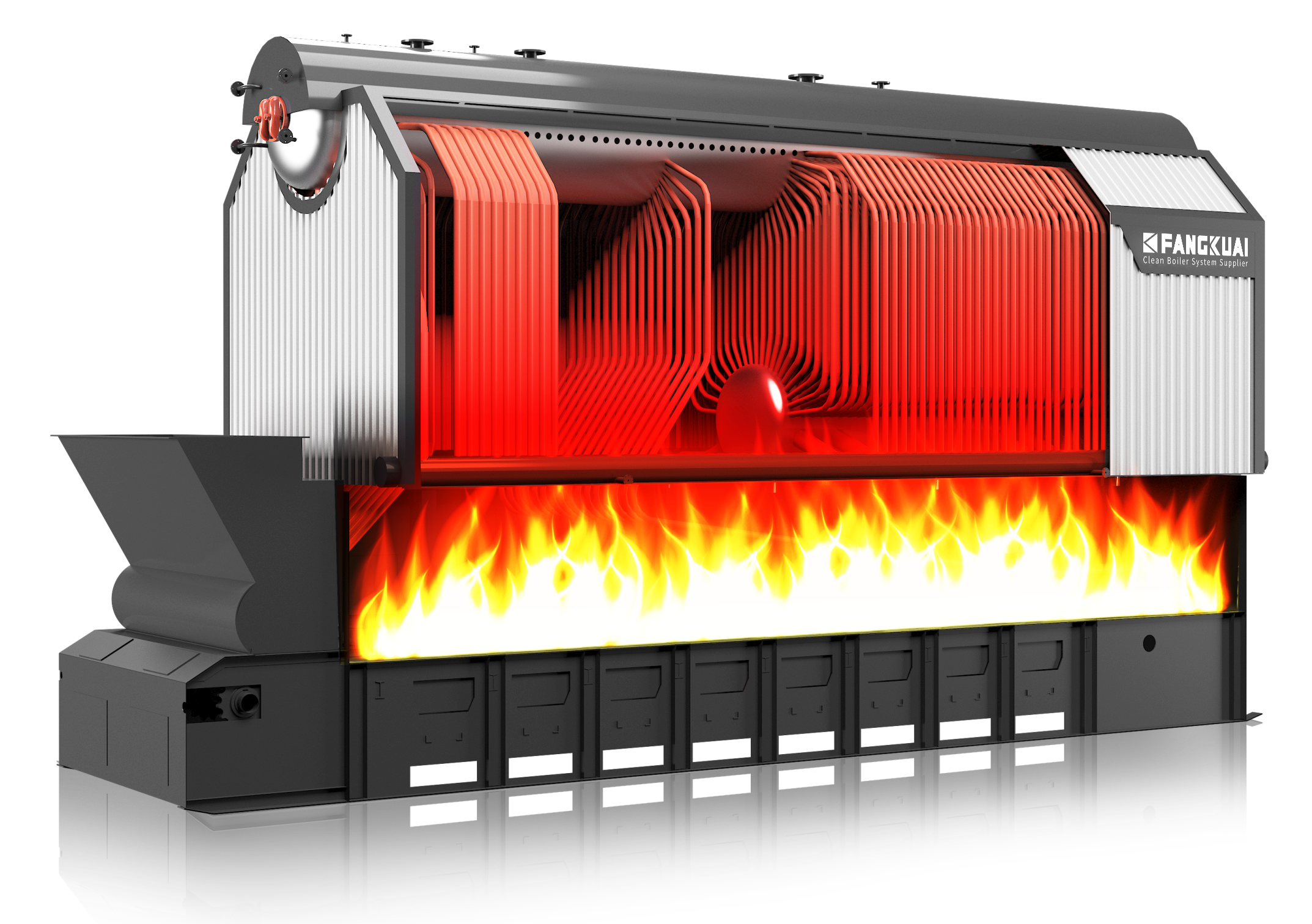
Im heutigen Industrie- und Gewerbesektor, Die Reduzierung des Energieverbrauchs und die Senkung der Kohlenstoffemissionen sind zu entscheidenden Zielen für die Steigerung der Betriebseffizienz geworden. Biomassekessel, Als effiziente und umweltfreundliche Energielösung, werden bei Geschäftsinhabern und Baumanagern zunehmend an Popularität gewonnen.
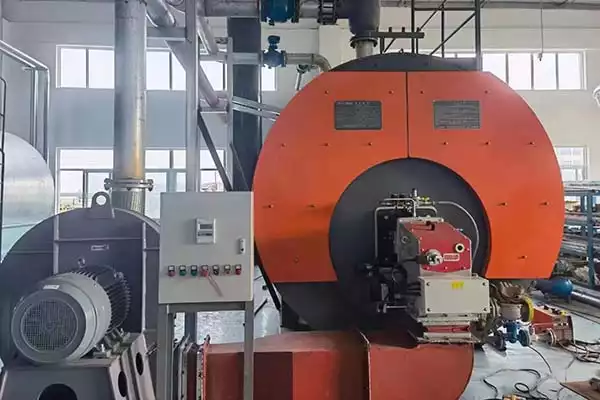
In den letzten Jahren, the biomass boiler types that are relatively mature and have more application performance are water-cooled vibrating grate furnaces, zirkulierende fließende Betten und eine kleine Anzahl kombinierter Rostkessel. Dieses Papier analysiert und vergleicht die Eigenschaften mehrerer Kesseltypen und den Einfluss der Feuchtigkeit, Asche und Verunreinigungen bei der Zusammensetzung von Biomassebrennstoff bei der Auswahl von Biomassekesseln.
Gas Boiler : Der ultimative FAQ-Leitfaden
Fehlerbehebung bei Gaskesseln: Get answers to common gas boiler issues in this helpful Q&A page. Entdecken Sie Lösungen für Probleme wie das Nichteinschalten des Heizkessels, Temperatur einstellen, Gaslecks, fehlerhafte Zündung, und mehr. Lassen Sie sich von Experten beraten, damit Ihr Gaskessel reibungslos und effizient läuft.Schritt-für-Schritt-Anleitung zur Installation eines Ölkessels
Wählen Sie einen geeigneten Standort für die Installation des Ölkessels, Stellen Sie sicher, dass genügend Platz für den Heizkessel vorhanden ist, Öltank, und notwendige Rohrleitungen. Der Standort sollte für Wartungsarbeiten leicht zugänglich sein, gut belüftet, und die örtlichen Bauvorschriften einhalten.Installation eines Gaskessels: Ein Leitfaden für effizientes Heizen
Interessiert daran, zu lernen, wie man einen Gaskessel zu Hause richtig installiert? Wir bieten eine umfassende Installationsanleitung für Gaskessel, den Installationsprozess abbrechen, Vorsichtsmaßnahmen, und wie man für Sicherheit sorgt. Von der professionellen Installation bis zur wichtigen Wartung, Wir kümmern uns um die Heizung Ihres Hauses.wie man einem Dampfkessel Wasser hinzufügt?
Lernen Sie die wesentlichen Schritte und Techniken zum Nachfüllen von Wasser in einen Dampfkessel. Entdecken Sie die Bedeutung, Sicherheitsmaßnahmen, verschiedene Methoden, und Wartungstipps zur Aufrechterhaltung optimaler Wasserstände in Ihrem Dampfkesselsystem.7 Schritte, die Ihnen erklären, wie Sie einen Dampfkessel reinigen
Entdecken Sie die wesentlichen Schritte und Techniken zum effektiven Spülen eines Kesselsystems. Erfahren Sie die Bedeutung, Sicherheitsmaßnahmen, verschiedene Methoden, und Wartungstipps zur Aufrechterhaltung einer optimalen Kesselleistung.Der Wasserstand im Dampfkessel ist zu hoch: Ursachen, Wirkungen und Lösungen
Ein hoher Wasserstand in einem Dampfkessel kann ein besorgniserregendes Problem sein, da er dazu führen kann, dass Wasser in die Dampfleitungen gelangt, Auswirkungen auf die Effizienz und Sicherheit des Kesselsystems haben. Es gibt einige mögliche Gründe für dieses Problem und Maßnahmen, die Sie ergreifen können, um es zu beheben:Reasons and solutions for steam boiler not working
steam boilers sometimes stop working, which brings great inconvenience to production. Also, what is the reason why the steam boiler is not working? Wie können wir dieses Problem lösen?? Nächste, lass es uns gemeinsam besprechen.How to avoid uneven heat in gas boilers?
The uneven heat of the gas boiler refers to the phenomenon of uneven heat load in the same heating surface tube group.
vSehen Sie sich die Bewertungen unserer Kunden an
"Der Dampfkessel von Fangkuai ist perfekt für meinen Lebensmittelverarbeitungsbetrieb. Es erfüllt alle unsere Anforderungen und ist sehr zuverlässig. Die Qualität der Materialien und die Konstruktion des Kessels sind außergewöhnlich. Außerdem ist es sehr einfach zu bedienen und zu warten, Das hat uns geholfen, Zeit und Geld bei der Wartung zu sparen. Ich kann die Dampfkessel von Fangkuai jedem wärmstens empfehlen, der zuverlässige Heizlösungen benötigt."
Json
Brasilien"Der Thermalölkessel von Fangkuai ist sehr einfach zu bedienen und zu warten. Es hat uns geholfen, Zeit und Geld bei der Wartung zu sparen, was zu erheblichen Kosteneinsparungen geführt hat. Die Qualität der Materialien und die Konstruktion des Kessels sind außergewöhnlich. Es ist auch sehr energieeffizient, was uns geholfen hat, Geld bei unseren Energierechnungen zu sparen. Ich kann den Thermalölkessel von Fangkuai sehr empfehlen ."
Allen
Brasilien"Ich bin sehr beeindruckt von der Qualität des Heißwasserboilers von Fangkuai. Es ist für die Ewigkeit gebaut und hat meine Erwartungen übertroffen. Auch die Installation verlief reibungslos und der Kundenservice war ausgezeichnet. Der Warmwasserboiler ist sehr einfach zu bedienen und zu warten, und die Energieeffizienz ist bemerkenswert. Ich kann die Heißwasserboiler von Fangkuai sehr empfehlen."
Jack
Australien"Die Zusatzausrüstung von Fangkuai hat mein Kesselsystem noch besser gemacht. Die Qualität der Ausrüstung ist außergewöhnlich und die Preise sind sehr vernünftig. Die Ausrüstung hat dazu beigetragen, die Effizienz und Leistung meines Kesselsystems zu verbessern, was zu erheblichen Kosteneinsparungen geführt hat. Ich kann die Zusatzausrüstung von Fangkuai jedem wärmstens empfehlen, der hochwertiges Kesselzubehör benötigt."
Maryk
Vereinigtes Königreich"Der Thermalölkessel von Fangkuai ist sehr einfach zu bedienen und zu warten. Es hat uns geholfen, Zeit und Geld bei der Wartung zu sparen, was zu erheblichen Kosteneinsparungen geführt hat. Die Qualität der Materialien und die Konstruktion des Kessels sind außergewöhnlich. Es ist auch sehr energieeffizient, was uns geholfen hat, Geld bei unseren Energierechnungen zu sparen. Ich kann den Thermalölkessel von Fangkuai sehr empfehlen ."
Allen
Brasilien"Der Kundenservice bei Fangkuai ist erstklassig. Sie halfen mir bei der Auswahl des perfekten Kessels für meine Bedürfnisse und boten während des gesamten Prozesses großartige Unterstützung. Der Installationsprozess verlief auch sehr reibungslos und der Kessel hat meine Erwartungen übertroffen. Es ist sehr einfach zu bedienen und zu warten, und die Energieeffizienz ist bemerkenswert. Ich kann die Produkte von Fangkuai jedem wärmstens empfehlen, der zuverlässige und effiziente Heizlösungen benötigt."
Juan
Mexiko"Der Kundenservice bei Fangkuai ist erstklassig. Sie halfen mir bei der Auswahl des perfekten Kessels für meine Bedürfnisse und boten während des gesamten Prozesses großartige Unterstützung. Der Installationsprozess verlief auch sehr reibungslos und der Kessel hat meine Erwartungen übertroffen. Es ist sehr einfach zu bedienen und zu warten, und die Energieeffizienz ist bemerkenswert. Ich kann die Produkte von Fangkuai jedem wärmstens empfehlen, der zuverlässige und effiziente Heizlösungen benötigt."
Juan
Mexiko"Der Heißwasserboiler von Fangkuai ist erstaunlich. Es heizt schnell und effizient auf, und das Wasser bleibt lange heiß. Wir hatten nie Probleme damit und es hat unsere täglichen Abläufe erheblich verbessert. Auch die Installation verlief reibungslos und der Kundenservice war ausgezeichnet. Ich kann die Heißwasserboiler von Fangkuai sehr empfehlen."
Sarah
Kanada"Der Dampfgenerator von Fangkuai ist perfekt für mein kleines Unternehmen. Es ist sehr einfach zu bedienen und erfordert nur minimale Wartung. Es ist auch sehr energieeffizient, was mir geholfen hat, Geld bei meinen Energierechnungen zu sparen. Der Kundenservice bei Fangkuai ist ebenfalls ausgezeichnet. Sie sind sehr reaktionsschnell und immer bereit zu helfen. Ich kann die Dampfgeneratoren von Fangkuai sehr empfehlen."
Ahmed
Ägypten